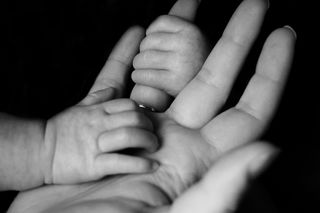Narcissism
How to Survive a Narcissistic Mother
Mother's day isn't always roses and rainbows.
Posted April 30, 2018 Reviewed by Abigail Fagan
They don’t make Hallmark cards for mothers who can’t love their children. In fact, they don’t make Hallmark cards for many of our mothers.
As we browse through the racks of Mother’s Day cards, we read about an idealized vision of motherhood — mothers who sacrificed for their children, who were always there for their children, who made their children feel loved and cherished, and who made it clear that their children always came first.
We read about moms who were there to kiss every boo-boo and drive every carpool, who never missed a soccer game and had homemade brownies and ants on a log waiting for an after-school snack. We read about moms who were up for late-night talks after a bad date, moms who were like a best friend — the World’s Best Moms. Surely, these mothers exist somewhere?
For those of us who don’t have the mothers that Hallmark writes about, the process of selecting a card can be challenging. I mean, where are all the cards saying, “Thanks for doing the best that you could do, even if it wasn’t always perfect”?
But for daughters of narcissistic mothers, Mother’s Day can feel downright torturous. We know that whatever we do will not be good enough, and yet many of us persist. So each year, as the frost melts, and the tulip buds peek their green tops out of the thawed dirt, wounded daughters pour through the racks of cards, searching for one that will please their mother without betraying the reality of their own lived experience. In searching for the most innocuous card they can find (“Wishing You a Special Day” or “Celebrate You!”), they are forced to weed through cards about the mothers they wished they had and to confront the deprivations and emotional abuse they endured. A yearning overtakes them — a longing for a mother that they will never have.
We believe that when a woman becomes a mother, love is innate. And for many women, this is the case. A biological switch flips, and we are enraptured with our babies. The sound of their cries pulls at our heartstrings. We gaze endlessly into their faces. And we just can’t seem to keep our hands off those pudgy little feet. Our culture relishes these idealized visions of motherhood, using them to sell us everything from diapers to cars to life insurance.

The truth — as opposed to what Pampers would have us believe — is that motherhood is complicated. Love is infused with moments of hate (as the mother of a toddler, I can say this with great certainty). We get frustrated, we lose our cool, and we aren’t always able to give our children what they need. There are moments when we want to disappear, when we wonder: Why did I ever think this would be a good idea? But then our kid comes and gives us a hug, or that pitiful, apologetic look, or acknowledges that, indeed, we were right when we said it is impossible to put your socks on after your shoes, and our heart melts all over again. “Good-enough mothering” is inevitably peppered with ruptures, failures, and — perhaps most important — repairs.
But sometimes these failures are more sinister than the benign ruptures in a loving mother-child relationship. Sometimes something goes terribly awry in the mothering process.
Some mothers are unable to truly love their child.
The world doesn’t know what to make of this; it’s not a topic of conversation on mommy blogs or at playdates, and often we don’t even talk about it among our closest friends. If you didn’t experience it yourself, it is hard to imagine that some women are so incapacitated by their own traumas and so desperate to fill their own emptiness that they are unable to see their children as unique individuals worthy of love.
Mothers who have narcissistic personality disorder see their child as an extension of themselves — an object on which to project denied or unwanted aspects of self, a competitor, and a source of envy. Narcissistic mothers live in their own realities, built around a vision of themselves as “good” and worthy of attention and adoration. They will do whatever it takes to preserve this self-image, oblivious to the wreckage left in their wake. A true narcissist is unable to form relationships — at least not in the way most people think of them. A narcissistic mother is only able to see other people, including her own children, as objects that either meet or frustrate her own needs.
Psychoanalyst and pediatrician D.W. Winicott said, "The mother gazes at the baby in her arms, and the baby gazes at his mother's face and finds himself therein ... provided that the mother is really looking at the unique, small, helpless being and not projecting her own expectations, fears, and plans for the child. In that case, the child would find not himself in his mother's face, but rather the mother's own projections. This child would remain without a mirror, and for the rest of his life would be seeking this mirror in vain."
Children are hardwired to seek their parents' love and approval. When they don’t receive it, they believe that it is because they are unlovable. It is safer to live in a world in which you are bad than to live in a world where the person who is supposed to love, care, and protect you is unable to do so. After all, if we are the problem, then we can just change ourselves and eventually be loved. Many children work tirelessly seeking a mother’s affection and approval, but find it is like trying to squeeze blood from a stone.
The pain of being raised by a narcissistic mother can feel like death by a thousand paper cuts. It can be difficult to point to any one experience to convey the damage of chronic rejection, criticism, instability, and unrequited love. The profound deprivation of being raised by a mother unable to love leaves a gash in your psyche that you can spend a lifetime trying to mend.

Healing from a narcissistic mother is a process of mourning, acceptance, and repair: Mourning the mother that you never had and the childhood that was taken from you. Accepting that the mother whom you yearn for, deserve, and dream of is a mother that yours can never be. Not because you are unlovable, but because she is incapable of loving. This was true long before you were born, and there was nothing you could have done to change it. Through this process of grieving and accepting, you can start to repair — not your relationship with your mother, but your relationship with yourself. You can become the mother that you never had, both for yourself and, if you are a mother, for your own children. You can approach yourself with the understanding, compassion, nurturance, and love that your mother was unable to give. When you recognize that you are not broken, and are worthy of love, something magical happens: Shame dissipates. The ugliness you believe is at your core disappears. You are no longer helpless. You are able to move forward.
If you are the daughter of a narcissistic mother, you are not alone. You are not crazy. You are not bad. You are not broken. Healing is possible. You are worthy of being loved and capable of loving. You are not your mother.




